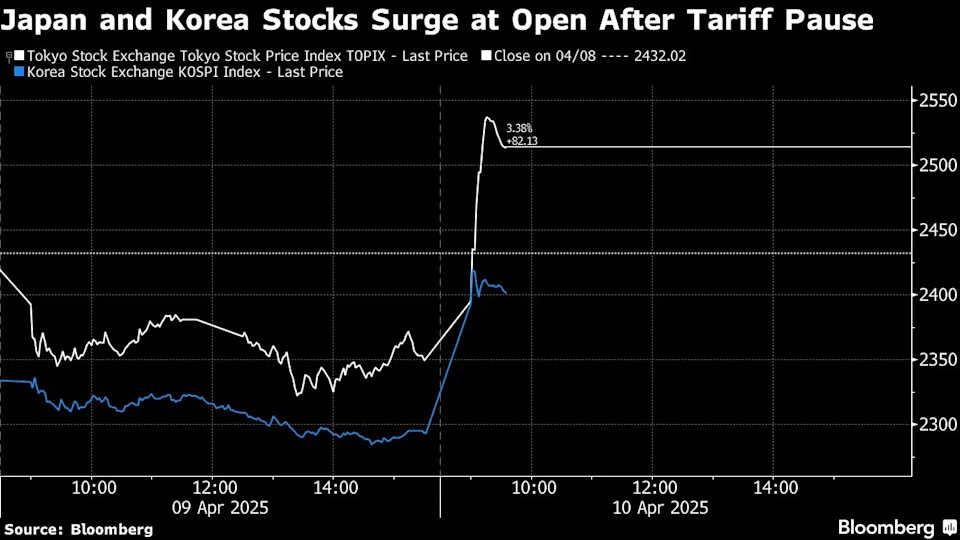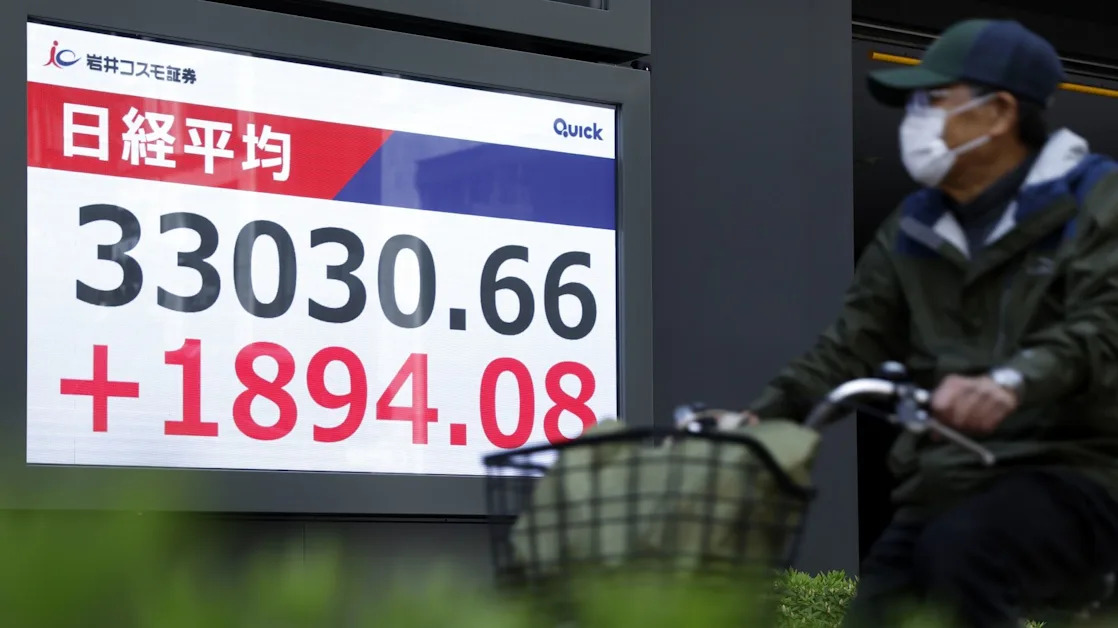(Bloomberg) — Stocks in Japan and South Korea jumped the most since August on Thursday as a reprieve in higher US tariffs on most nations lured buyers back to the beaten-down market.
Japan’s benchmark Topix index climbed as much as 8.3% while the Nikkei 225 Stock Average ( ^N225 ) rallied 9%. The nation’s 10-year government bonds tumbled as risk aversion eased. South Korea’s Kospi ( ^KS11 ) Index soared as much as 5.5% a day after entering a bear market.
Across Asia, equity markets bounced back sharply with currencies after President Donald Trump announced a 90-day pause on higher tariffs that hit dozens of trade partners. But a degree of caution persisted as traders remained uncertain about the prospects of a long-term resolution to the crisis.
“Investors across Asia and beyond are breathing a sigh of relief,” said Frederic Neumann, chief Asia economist at HSBC Holdings Plc. “The postponement of reciprocal tariffs by the US allows more time for negotiations. For export-centred Asian economies this is especially important, given the growth impact steep US tariffs would have had.”
In Japan, all 33 sub-sectors of the Topix gauge advanced, with exporters such as electric appliance and automakers ranking among the largest contributors to the index’s gains.

Over in South Korea, the rally was led by large-cap chip and auto exporters. SK Hynix Inc. soared by a record 15% at the open, while Samsung Electronics Co. jumped almost 7%. Traders said the sharp and sudden rebound could prompt short sellers to cover bearish positions.
Trump’s reversal, coming roughly 13 hours after high duties took effect, sparked the largest rally in the S&P 500 ( ^GSPC ) since 2008. China meanwhile was singled out as the biggest problem for US trade, and duties were raised to 125% after Beijing announced plans to retaliate with an 84% levy on American goods.
Concerns over an escalating trade war and its impact on the global economy had toppled stock markets, sending Japan’s blue-chip Nikkei gauge into a bear market. The broader Topix index was down more than 10% since the tariffs were announced, through Wednesday.
‘Huge Relief’
“The 90-day pause on the “reciprocal” tariff was a huge relief to investors who had started to price in a recession,” said Rajeev De Mello, a global macro portfolio manager at Gama Asset Management. “The historical rally in the US will have legs in Asia but I believe that it will take time for the markets to stabilize after such a momentous week.”
The optimism on Thursday spilled over into currency markets. The South Korean won jumped the most since December to lead its Asian peers higher, while the Thai baht climbed the most in seven months.
Japan’s 10-year government bond yield jumped as much as 13 basis points as market volatility eased, while the yen strengthened 0.6% to 146.92 per dollar after sinking over 1% overnight.
—With assistance from Kana Nishizawa and Matthew Burgess.
More stories like this are available on bloomberg.com


